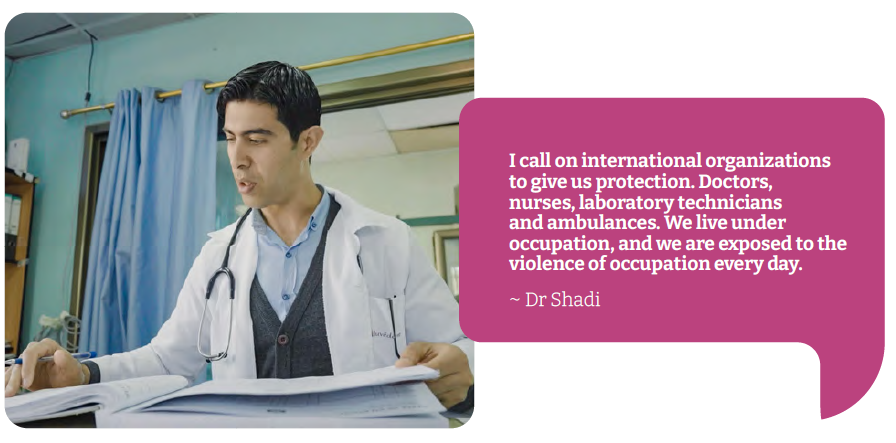 17 August 2023 – On 26 February, Israeli settlers raided Huwara village near Nablus, in the north of the West Bank. Shadi, a doctor working in emergency medicine at Huwara Emergency Medical Centre, spoke about his experience on that day.
17 August 2023 – On 26 February, Israeli settlers raided Huwara village near Nablus, in the north of the West Bank. Shadi, a doctor working in emergency medicine at Huwara Emergency Medical Centre, spoke about his experience on that day.
“Our team from Huwara Emergency Medical Centre was prevented from accessing. I wasn’t on duty when it all happened. I was at home, but I was called with other colleagues to assist the team on duty. We were forced to use an ambulance to help us reach the medical centre.”
WHO documented 9 attacks on health care during the raid, obstruction to access of 7 ambulances and paramedic teams, as well as 8 doctors, with 2 incidents further involving verbal assault and intimidation of medical teams by both soldiers and settlers.
“The ambulances were not able to transfer the injured people or provide them with needed treatment. One of the conditions put on the first responders was that they would have to get out of the ambulance and go on foot to provide treatment in the field, where they were not allowed to evacuate the injured from the location.
“We contacted Rafidia Government Hospital and asked them to send staff to support our team. They sent a team, but the team reached us late because Israeli forces obstructed them at the checkpoint. The ambulance transferring the team was stuck at Huwara checkpoint for 2 hours, before they took a different route through Awarta checkpoint and reached the medical centre around 11:00 pm.”
A 19-year-old man had suffered a major head injury and needed transfer from Huwara Emergency Medical Centre to Rafidia Government Hospital in Nablus. His transfer was delayed for more than 2 hours before the crew managed to get coordination for his transfer.
“So many of our staff live in Nablus. When they come to work or leave to return home they are obstructed at checkpoints. Even ambulances – where it is known internationally that they should move freely – are obstructed. I call on international organizations to give us protection. Doctors, nurses, laboratory technicians and ambulances. We live under occupation, and we are exposed to the violence of occupation every day.”
With funding support the Swiss Agency for Development and Cooperation, the WHO occupied Palestinian territory Right to Health programme monitors and documents the barriers to the right to health and social determinants of health, including obstacles to health access and attacks on health care; capacity strengthening towards enhancing health equity and rights; and advocacy to engage public audiences, UN mechanisms, and duty bearers in efforts to enhance respect, protection, and fulfilment of the right to the highest attainable standard of health.




